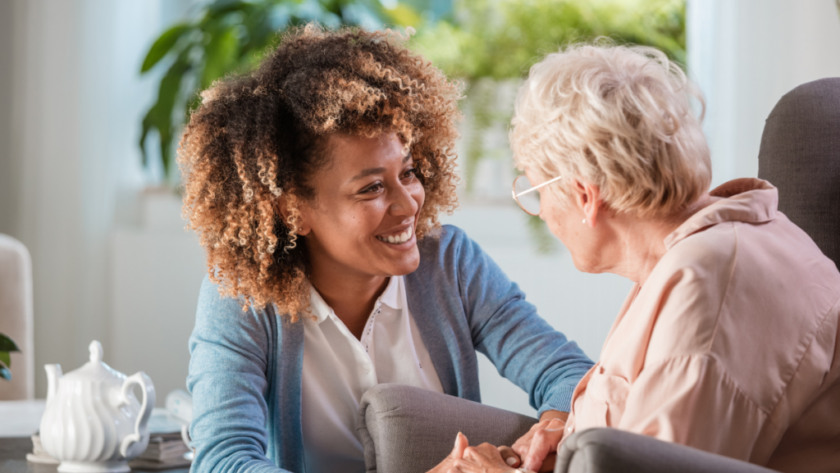As our loved ones age, ensuring their safety becomes a top priority. Seniors are more vulnerable to accidents, injuries, and health-related issues, which makes it crucial to take steps to create a safe and supportive environment for them. Whether they are living independently, with family, or in a care facility, there are many practical ways to enhance their safety and well-being.
From home modifications and medical alert systems to fall prevention and emotional support, here’s how you can keep your senior relative safe.
Medical Alert Systems
Medical alert systems are an excellent tool for enhancing the safety of seniors, especially those who live alone or have mobility or health issues. These devices provide immediate assistance in case of an urgent situation, such as a fall or sudden illness. Most medical alert systems come with wearable devices like pendants or wristbands that have emergency buttons. If the senior experiences an emergency, they can press the button to alert a monitoring center, caregiver, or emergency services.
Some modern medical alert systems are equipped with advanced features like fall detection, GPS tracking, and two-way communication. Fall detection technology automatically sends an alert if the system detects a fall, even if the person is unable to press the emergency button at the time at the time. GPS tracking is particularly helpful for seniors who may have cognitive issues like dementia, as it allows caregivers to monitor their location and ensure they stay within safe boundaries.
These systems provide peace of mind for both seniors and their families, knowing that help is available at the touch of a button.
Care Home Relocation
For some seniors, living independently at home may no longer be the safest option, and moving into a care home can provide the comprehensive support they need. Care homes, such as Great Oaks Care Home in Bournemouth, are designed with safety in mind, offering 24/7 supervision and professional care to help with daily tasks such as mobility, medication management, and personal hygiene. This constant availability of assistance reduces the risk of accidents, such as falls, that may occur when seniors live alone.
Care homes also have specific safety features, including non-slip floors, grab bars, emergency call systems, and wheelchair-accessible facilities, ensuring that the environment is tailored to the needs of seniors with mobility or health issues. These facilities provide peace of mind for both seniors and their families, knowing that their loved ones are living in a secure and supportive setting.
In addition to physical safety, care homes offer structured social activities that promote mental stimulation and emotional well-being, helping to prevent loneliness and isolation. Moving into a care home may be the safest option when your senior relative requires more support than can be managed at home, ensuring they are in an environment that caters to their ongoing health and safety needs.
Medication Management
For seniors taking multiple medications, it’s crucial to ensure that they are managing their prescriptions safely. Mismanagement of medications, such as missing doses or taking the wrong amount, can result in serious health issues. To prevent this, consider using pill organizers or electronic medication dispensers that remind them when it’s time to take their medicine.
Regular communication with healthcare providers about medications is important to ensure there are no adverse interactions between drugs and to keep prescriptions up to date. Additionally, a family member or caregiver can assist with overseeing medication schedules and ensuring that prescriptions are refilled on time.
Regular Health Check-ups
Keeping your senior relative safe includes monitoring their overall health through regular check-ups with their healthcare provider. Routine visits allow doctors to identify potential health issues early, adjust medications, and provide guidance on maintaining a healthy lifestyle. Regular eye and hearing tests are also essential, as vision and hearing loss can increase the risk of accidents.
Encouraging your relative to maintain a healthy diet, stay physically active, and engage in cognitive exercises can help improve their physical and mental health, contributing to their overall safety and well-being.
Social and Emotional Support
Safety goes beyond physical measures; emotional and social well-being are equally important. Loneliness and isolation can negatively impact seniors’ mental health, leading to depression or cognitive decline. Keeping your senior relative safe means providing emotional support and ensuring they have regular social interactions. Encourage them to participate in social activities, whether it’s through senior centers, community groups, or virtual gatherings.
Staying connected with family and friends through regular phone calls, video chats, or in-person visits helps reduce feelings of isolation and provides emotional reassurance. Having a strong support network also means that there are more people looking out for their well-being and safety.
Conclusion
Keeping your senior relative safe requires a combination of proactive measures, such as fall prevention, medical alert systems, home modifications, and proper medication management. Regular health check-ups and a strong social support system also play a vital role in ensuring their physical and emotional well-being.
By taking these steps, you can create a safer, more supportive environment that helps your loved one maintain their independence while minimizing the risks associated with aging.




